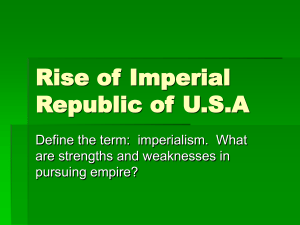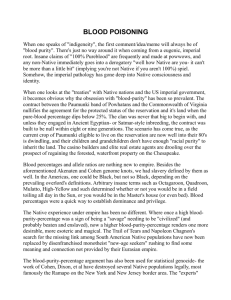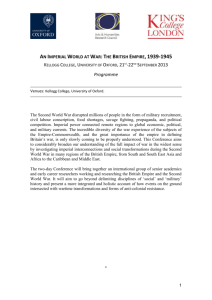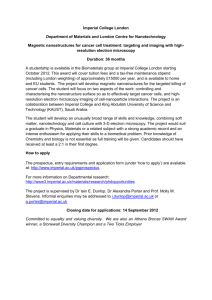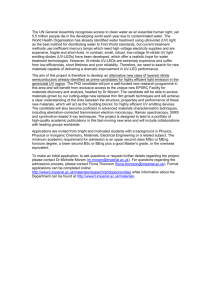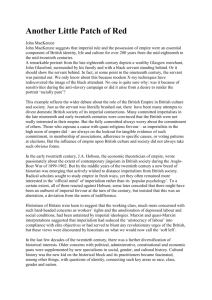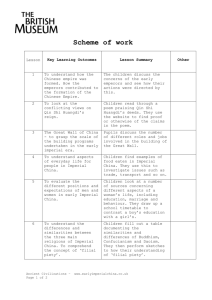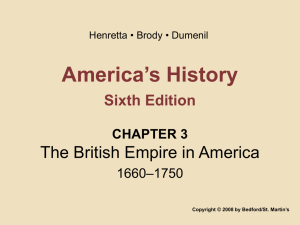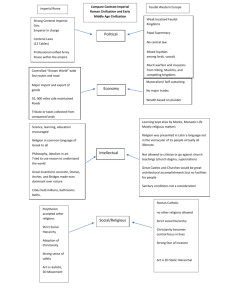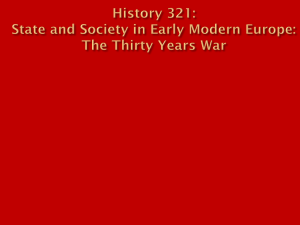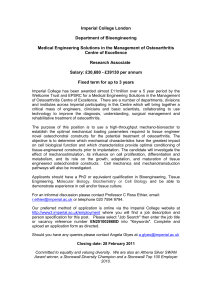Preliminary Examination Britain/Empire/Commonwealth, 1688-present Spring 2009
advertisement
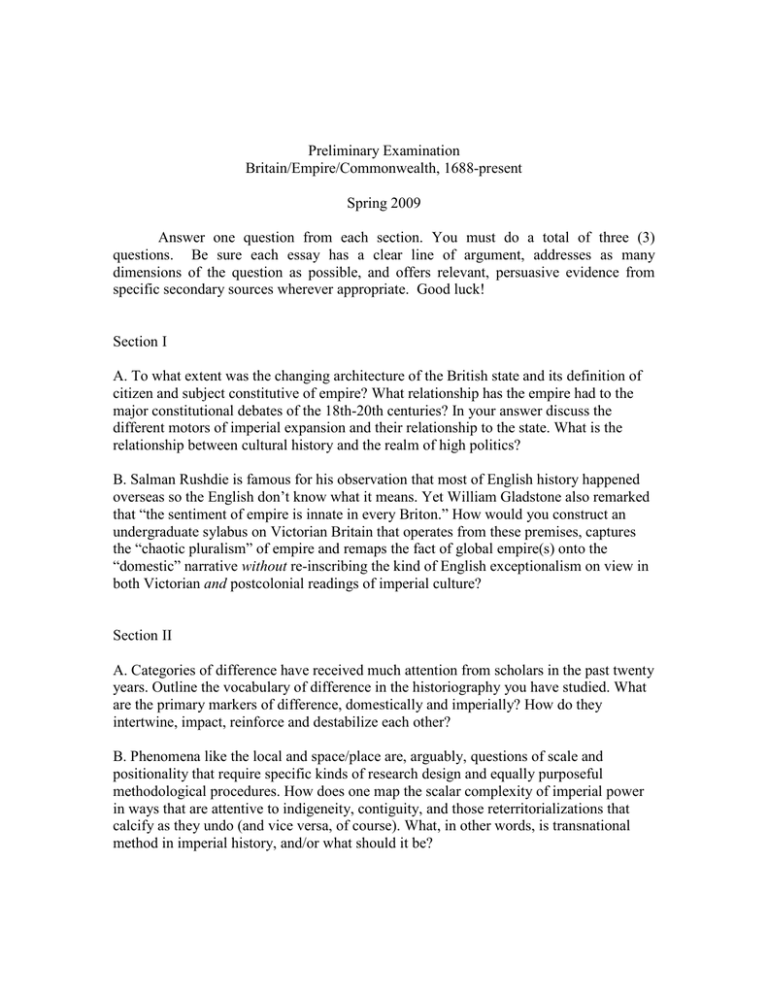
Preliminary Examination Britain/Empire/Commonwealth, 1688-present Spring 2009 Answer one question from each section. You must do a total of three (3) questions. Be sure each essay has a clear line of argument, addresses as many dimensions of the question as possible, and offers relevant, persuasive evidence from specific secondary sources wherever appropriate. Good luck! Section I A. To what extent was the changing architecture of the British state and its definition of citizen and subject constitutive of empire? What relationship has the empire had to the major constitutional debates of the 18th-20th centuries? In your answer discuss the different motors of imperial expansion and their relationship to the state. What is the relationship between cultural history and the realm of high politics? B. Salman Rushdie is famous for his observation that most of English history happened overseas so the English don’t know what it means. Yet William Gladstone also remarked that “the sentiment of empire is innate in every Briton.” How would you construct an undergraduate sylabus on Victorian Britain that operates from these premises, captures the “chaotic pluralism” of empire and remaps the fact of global empire(s) onto the “domestic” narrative without re-inscribing the kind of English exceptionalism on view in both Victorian and postcolonial readings of imperial culture? Section II A. Categories of difference have received much attention from scholars in the past twenty years. Outline the vocabulary of difference in the historiography you have studied. What are the primary markers of difference, domestically and imperially? How do they intertwine, impact, reinforce and destabilize each other? B. Phenomena like the local and space/place are, arguably, questions of scale and positionality that require specific kinds of research design and equally purposeful methodological procedures. How does one map the scalar complexity of imperial power in ways that are attentive to indigeneity, contiguity, and those reterritorializations that calcify as they undo (and vice versa, of course). What, in other words, is transnational method in imperial history, and/or what should it be? Section III A. How can space be used as a category of analysis for British and imperial history? What kinds of geographies are made visible with this approach? How does an attention to inter- and intra- imperial, as well as indigenous geographies and traffics shape our understandings? To what extent are geographies and concepts of space used in different places and spaces to forward or counter imperialism? B. “Imperial” history and “native” history have typically been drawn from different archives and have as typically been addressed to different audiences. Is it possible to reconcile the two -- as research projects, as narrative forms and as intellectual/political interventions in contemporary questions? What are the limits of imperial history? When, where and under what circumstances does it have purchase, efficacy and persuasive power, and for whom? And why history as opposed to, say, anthropology?
